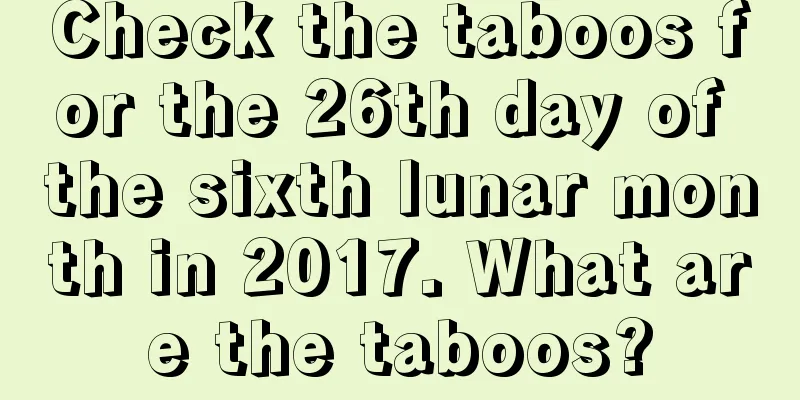Where is the direction of the God of Happiness on the seventh day of the twelfth lunar month in 2019?

|
Where is the direction of the God of Happiness on the seventh day of the twelfth lunar month in 2019? New Year's Day, which is January 1st of the Gregorian calendar, is commonly known as the "New Year" in most countries in the world. The twelfth month of the lunar calendar is also known as the twelfth month, or the wax month. So what are the things to do and not to do in the twelfth month? Visit Shui Mo Xiansheng's website to learn more about the twelfth lunar month of 2019. 1. What day is the seventh day of the twelfth lunar month in 2019?December 7, 2019 (Lunar calendar) Capricorn on Wednesday, January 1, 2020 (Solar calendar) Conflict: Rabbit Day Conflict (Dingyou) Rooster Yearly Evil: Yearly Evil West Constellation: North Wall Water - Good Year of Void: Chensi Month: Shenyou Day: Chensi Today's Yin and Yang Noble Gods are in the position of Yang Noble God: Southeast Yin Noble God: Due East God of Wealth God of Happiness: Southeast God of Fortune: Due West God of Wealth: Due South This month's fetal god: The bedroom and bed Today's fetal god: The bedroom and bed door, inner south 2. The direction of the God of Happiness on the seventh day of the twelfth lunar month in 2019
3. Origin of the name of New Year’s Day:Yuan means "beginning", so the beginning of any number is called "yuan"; Dan means "day", so "New Year's Day" means "the first day". New Year's Day is also known as "Sanyuan", namely the first day of the year, the first day of the month, and the first day of the hour. Due to differences in geographical environment and calendar, the time of New Year's Day in different countries and ethnic groups around the world varies in different eras. Now, the Gregorian calendar is increasingly recognized by countries around the world. Most countries in the world have adopted the internationally accepted Gregorian calendar and regard January 1st of each year as "New Year's Day." Countries that use the Gregorian calendar regard January 1st of the Gregorian calendar as New Year's Day and the whole country has a holiday.In the minds of ancient Chinese, "yuan" means beginning, and "dan" means morning. According to historical records, "New Year's Day" has many names in Chinese history, such as Yuanri, Yuanzheng, Yuanchen, Kainian, Yuanchun, Shangri, Huasui, etc., but among many names, "New Year's Day" is the most common and has the longest history. | |||||||||||||||||||||||||||||||||||||||||||||||||||||||||||||||||||||||||||
Recommend
What is the date and day of February 11th in the lunar calendar in 2019?
If you want to know more about the second month o...
When is the best time to move in December 2017?
Due to local customs, Chinese people have always a...
Which acupoints are most effective for moxibustion during the Great Heat solar term? Which part is best for moxibustion to dispel cold?
Which acupoints are most effective for moxibustion...
Where is the direction of the God of Happiness on the second day of the eleventh lunar month in 2020?
Where is the direction of the God of Happiness on...
When is New Year’s Eve 2017? Where is the direction of the God of Happiness on this day?
Introduction: It is a pity that time flies. Anothe...
Is the tenth day of the fourth lunar month in 2020 an auspicious day for opening a shop (or company)?
Choosing an auspicious day for opening a business...
Can’t have sex on Double Ninth Festival? Can’t go out? Can’t I go back to my parents’ home?
As a traditional Chinese festival, the Double Nint...
What day of the week is Labor Day in 2018? Is it a good day?
May Day should be a holiday well known to people a...
Is the 18th day of the 12th lunar month in 2021 a good date? Can I set up the bed on that day?
Different days have different good and bad fortune...
Will a baby girl born on June 7, 2019, the Dragon Boat Festival, bring bad luck to her mother? What is the best time to give birth on the Dragon Boat Festival?
Introduction: Many new lives will be born on the D...
Is it auspicious to sign and open a business on November 18, 2018 in the lunar calendar?
In addition to the winter month, the eleventh mont...
What is the zodiac sign of a baby born on the eighth day of the tenth lunar month in 2018?
Mengdong refers to the tenth month of the lunar ca...
Is it good for a tiger baby to be born in August of the lunar calendar in 2022? What is your fortune and destiny?
Is it good for a tiger baby to be born in August o...
Is it a good time to start renovation on September 15th of the lunar calendar in 2020? Is the hexagram a good sign?
"Breaking ground" means digging and digg...
Is July 17, 2019 a suitable date to pick up a new car?
Picking up a car is a relatively important matter...









